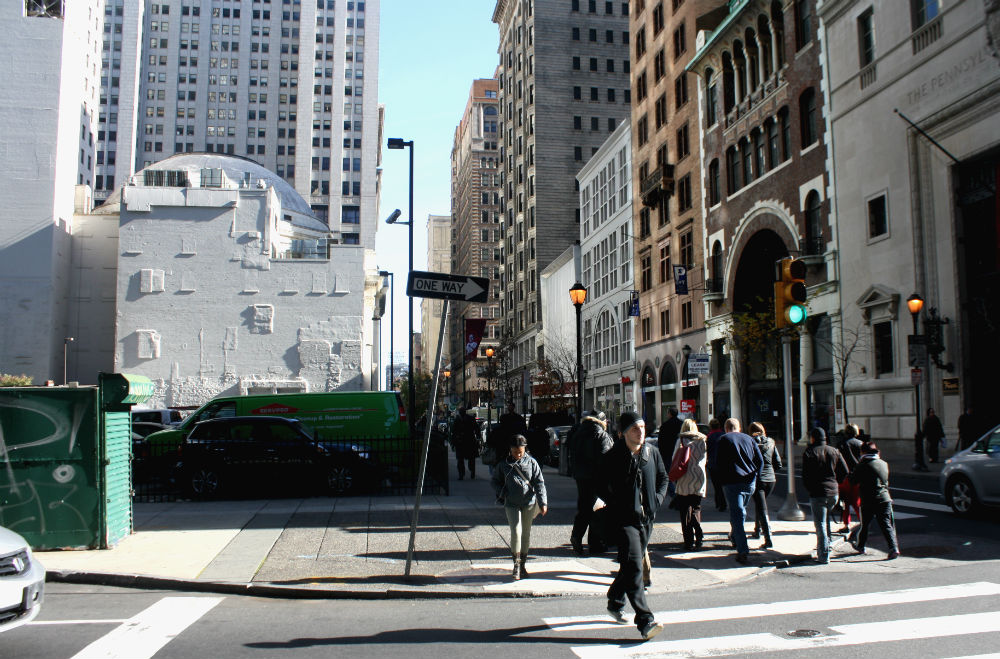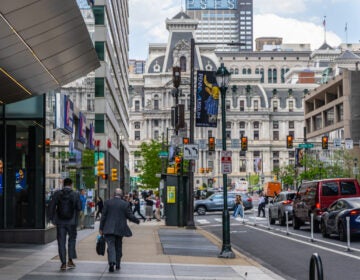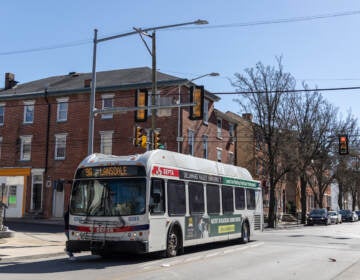Philadelphia gets a Land Bank, W Hotel gets $33 million subsidy

Philadelphia’s City Council unanimously approved the formation of a land bank on Thursday, inching toward the goal of finding productive, community-building, and tax-paying uses for the city’s 40,000 vacant properties.
After Thursday’s vote, Philadelphia is the largest city in the United States with a land bank, an entity intended to help cities acquire and dispose of vacant, underutilized, and tax delinquent properties. Philadelphia’s land bank bill was sponsored by 7th-District Councilwoman María Quiñones-Sánchez, who has been working to bring such an agency to the city for years.
“I’m very happy that Philadelphia has made history today by creating the largest land bank in the country,” Sánchez said. She is concerned, she added, that Philadelphia’s poverty rate is among the highest in the country, and hopes to work on ways for the land bank to help “reverse that tide.”
Bumps in the land bank’s legislative road have been well documented. If you’ve got a bit of spare time, here’s one far-from-exhaustive syllabus for a crash course in the intertwined issues of vacant land, tax delinquency, and municipal politics:
-
Plan for a Philadelphia city land bank is taking steps forward – Philadelphia Inquirer
-
As Philly land bank momentum slows, proponents want administration to take lead – PlanPhilly
-
Land Bank hearing scheduled, questions remain – Eyes on the Street
-
Clarke seeks more Council say over land bank – AxisPhilly
-
Council Prez organizing community groups to scuttle land bank bill – City Paper
-
Was Council’s land bank vote a game-changer? – AxisPhilly
Councilwoman Sánchez emphasized that the work isn’t finished.
“We still have policies and procedures that must be developed, that have to be approved by Council,” Sánchez said. “We have a strategic plan that has to be developed and approved by Council. We have a budget allocation that we have to make sure is in the next fiscal year.”
Sánchez said that she is committed to putting in place a nine-month process for the acquisition and sale of vacant properties, a process which under current procedures can take years. The process must include simultaneous decision-making by several agencies, she said.
“I think that every community—block by block, neighborhood by neighborhood—needs to be informed and educated about this new tool,” Sánchez said. “…We have a responsibility, and some would say an obligation, to provide more information to ensure that our design and our development and our implementation is very, very deliberate if we are committed to addressing what today the Inquirer duly notes is one of the largest poverty rates in any major city.”
Later on Thursday, after last-minute negotiations between developers and hospitality workers, Council approved a $33 million tax-increment financing subsidy for the development of a W Hotel at 15th and Chestnut streets, on the site of a surface parking lot. The vote was 15-1, with Councilman Wilson Goode, Jr., voting against the subsidy.
Tax-increment financing is an economic development tool that allows increases in property and other taxes for certain projects to be devoted to project costs rather than to the city for a period of 20 years. TIFs are widespread in Chicago and some other cities, but have been used relatively sparingly in Philadelphia. A PlanPhilly analysis found that the projections for tax revenue increases from TIF projects tend to be overly optimistic.
The developer, Brook Lenfest, said he hopes to begin construction on the project “in the next few months.” Lenfest said that if he hadn’t been able to work out a deal with the labor unions today, he would have “thrown in the towel” and designed a different project for the site. He declined to discuss the details of the labor agreement.
WHYY is your source for fact-based, in-depth journalism and information. As a nonprofit organization, we rely on financial support from readers like you. Please give today.






